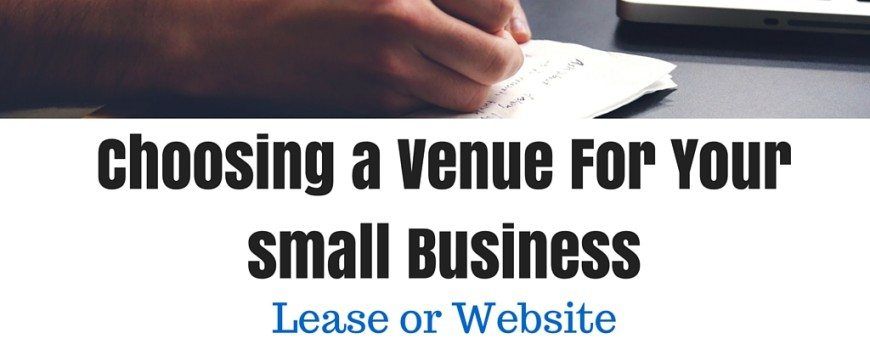In the short period of 2014-15, an additional 21,000 businesses were started in Australia. If you’re planning to be one of the 10,000 who’ll start in 2016, you have one pressing question:
Yes, as long as you have well-done policies and open your eyes for scams and fraud.
A lease is more expensive than a website, no doubt.
As a final word, let’s measure twice and cut once.
Think about all the aspects of running your future business.
List the pros and cons of each option – lease and website – and chose the one that will best resonate with the people you’ll be serving and the unique selling point of your business.
This should lead into an easier decision-making process.
Remember, in business there’s no one size fits all approach. Go for the option that’ll serve your business and customers better, and you’re making the right choice.
Should I start an online business (website) or should I go brick-and-mortar (lease)?
I and most entrepreneurs agree that starting an online business seems like the better choice for startups because a website is much cheaper than a lease. My clients are often surprised to find out that a website isn’t always better than a lease from a legal perspective.
I can’t give you the marketing and financial aspects of both, but I can show you what to expect from a website and a lease in terms of commercial legal requirements.
Running an online business
There isn’t much difference really join terms of setting up your business.
You’ll have to register your business name and trademarks, get an Australian business number and apply for licences before you can do any business.
If you decide to sell online, you’ll have to….
- Comply with the Electronic Transactions Act 1999 that ensures a transaction under a Commonwealth law will not be invalid simply because it was conducted through electronic communication. Each state and territory has its own Electronic Transactions Act, which generally mirrors the Commonwealth Electronic Transactions Act.
- Write
- Terms and Conditions
- Sales Terms
- Return policies
- Privacy Policy
- Consider the Spam Act because not everyone wants to hear about your discount
So, is starting an online business safe and easy?
Yes, as long as you have well-done policies and open your eyes for scams and fraud.
Many times, unethical customers might try to literally rip you off by ordering online and not completing payments for example. Make sure that you’re legally protected and have sales terms that are in your advantage.
When people don’t see you, they forget that you’re human too and it’s easier for them to scam you.
Running an offline business
Running an offline business doesn’t mean that you won’t have a website – that’s unthinkable in today’s world.
Rather, it means that you won’t have a transactional website. You’ll still need:
- registered business
- ABN
- a website
- website hosting for your information website
- privacy policy
- terms and conditions
- social media policy
However you won’t need:
- SSL (secure transaction software)
- sales terms
- to consider if your sales terms comply with ACCC
- to include personal contact information if you don’t want to
To put it simply, for a lease you’ll ….
- have a long-term agreement
- get less protection (than with your residential lease)
- not have a standard form
- be entering into a contract!
A contract is always risky business, and I personally advise you to consult your small business lawyer before signing a lease. She’ll be able to get the best out of it for you without the unnecessary rent increases or liabilities.
You’ll be paying the legal fees for the preparation of the lease documents so you might as well get your own lawyer.
A lease is more expensive than a website, no doubt.
But consider the fact that a lease is necessary for certain businesses. If you sell cupcakes, seeing them live will definitely influence your customers. The rent will be taken care by the increased sales from having your products in front of customers.
As a final word, let’s measure twice and cut once.
Think about all the aspects of running your future business.
List the pros and cons of each option – lease and website – and chose the one that will best resonate with the people you’ll be serving and the unique selling point of your business.
This should lead into an easier decision-making process.
Remember, in business there’s no one size fits all approach. Go for the option that’ll serve your business and customers better, and you’re making the right choice.



